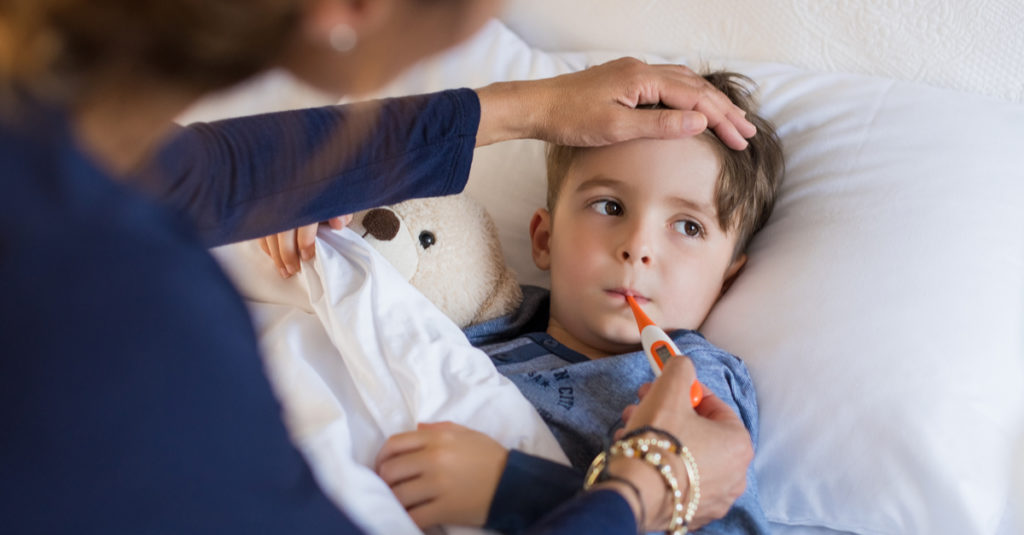Do children get COVID-19?
Children of all ages can get COVID-19, although they appear to be affected less commonly than adults. As of April 2020, children accounted for less than 2% of confirmed cases of COVID-19 in the United States.
According to the CDC, the age distribution of COVID-19 cases in children in the United States is as follows:
- <1 year — 15%
- 1 to 4 years — 11%
- 5 to 9 years — 15%
- 10 to 14 years — 27%
- 15 to 17 years — 32%
Are the signs and symptoms of COVID-19 different in children than adults?
Similar to adults, fever and cough are the most common symptoms seen in children. According to a recent study published among children with COVID-19 in the US, 56% had fever, 54% had cough, 13% had shortness of breath, and 73% had at least one of these symptoms. Less common symptoms are fatigue, runny nose, diarrhea and vomiting. In China, it was noted that about 16% of children with confirmed COVID-19 infection showed no symptoms at all.

Do children with COVID-19 tend to have more severe disease than adults?
No! In fact, most children tend to have less severe disease than adults. Most recover after 1-2 weeks, and fewer children need hospitalization than adults. Of children hospitalized in the US, less than 2% require the ICU (intensive care unit) care. The reasons children tend to have less severe disease than adults remain unclear. While pediatric patients fare better overall, certain children are at a greater risk for severe disease. These include children less than 1 year old and those with medical conditions including asthma, heart disease, immunosuppression, kidney disease, liver disease, diabetes, and severe obesity.
What if my child shows signs of illness?
Children with confirmed or suspected COVID-19 and mild symptoms (fever, cough, sore throat) generally should be managed at home unless they have a chronic condition that increases their risk of severe disease. Children should be kept at home in order to prevent the spread of the disease. Caregivers should watch for worsening symptoms that would require medical attention, such as difficulty breathing, chest pain, worsening cough, blue lips, confusion, and decreased urination.
What if my child has asthma?

To help prevent complications from COVID-19, make sure your child’s asthma is under good control now, while your child is healthy. Your child’s asthma medications should be taken consistently and with good technique. Poorly controlled asthma is a major risk factor to develop severe disease if your child gets sick with COVID-19. An “asthma action plan” may be helpful to have available for your child. This is a document provided by your doctor with instructions to follow at home, if your child’s asthma symptoms worsen.
Consider ways to decrease your child’s risk of exposure to COVID-19. The CDC recommends children over age 2 should wear a cloth mask when in public setting. Avoid play-dates with children from other households. Wash or sanitize your child’s hands frequently.
If you have concerns that your child’s asthma is not well controlled or if you have questions about how to manage your child’s asthma if they get sick, consider scheduling an appointment with your provider now. Many providers, including those at Colorado Allergy & Asthma Centers are offering telehealth visits.
Resources:
- Lu X, Zhang L, Du H, et al. SARS-CoV-2 Infection in Children. N Engl J Med 2020.
- Wei M, Yuan J, Liu Y, et al. Novel Coronavirus Infection in Hospitalized Infants Under 1 Year of Age in China. JAMA 2020.
- CDC COVID-19 Response Team. Coronavirus Disease 2019 in Children – United States, February 12-April 2, 2020. MMWR Morb Mortal Wkly Rep 2020; 69:422.
Category: Uncategorized


